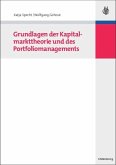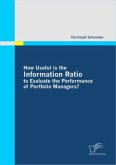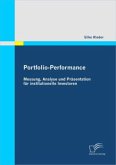Portfolio Management under Stress offers a novel way to apply the well-established Bayesian-net methodology to the important problem of asset allocation under conditions of market distress or, more generally, when an investor believes that a particular scenario (such as the break-up of the Euro) may occur. Employing a coherent and thorough approach, it provides practical guidance on how best to choose an optimal and stable asset allocation in the presence of user specified scenarios or 'stress conditions'. The authors place causal explanations, rather than association-based measures such as correlations, at the core of their argument, and insights from the theory of choice under ambiguity aversion are invoked to obtain stable allocations results. Step-by-step design guidelines are included to allow readers to grasp the full implementation of the approach, and case studies provide clarification. This insightful book is a key resource for practitioners and research academics in the post-financial crisis world.








